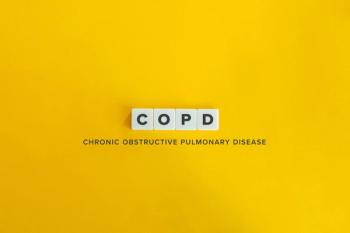
Study: First-Line Atezolizumab Monotherapy Extends Overall Survival in NSCLC
Investigators reported that, compared with chemotherapy, atezolizumab monotherapy was superior in overall survival and progression-free survival in patients with NSCLC.
Results of a recent study that examined atezolizumab monotherapy as a first-line treatment in patients with nonsquamous or squamous non-small-cell lung cancer (NSCLC) with PD-L1 expression found a significantly longer median overall survival (OS) with the drug, according to researchers.
The study, published in The New England Journal of Medicine, included patients with advanced NSCLC who had not previously received chemotherapy, and were without epidermal growth factor receptor (EGFR) mutations or anaplastic lymphoma kinase (ALK) translocations.
Prior studies, including the phase 2 BIRCH and POPLAR trials, as well as the phase 3 OAK trial, have demonstrated an OS benefit with atezolizumab, an anti-programmed death ligand (PD-L1) monoclonal antibody, as a monotherapy in patients with NSCLC with high PD-L1 expression across multiple lines of therapy. Researchers stressed that additional treatment options are needed for this population.
The global, randomized, open-label, IMpower110 phase 3 trial included 572 patients, and took place between July 2015 and February 2018. Participants underwent randomization at 144 centers in 19 different countries.
A total of 285 patients were administered atezolizumab, whereas 287 received chemotherapy. Overall, 554 patients, 277 patients in each cohort, had EGFR and ALK wild-type tumors, and 18 patients with an EGFR mutation or ALK translocation were excluded from the primary analysis population, but were included in the safety population.
In patients with EGFR and ALK wild-type tumors who expressed high PD-L1, median OS was 7.1 months longer in the atezolizumab group compared with the chemotherapy group: a significant extension, according to investigators. The former showed 20.2-month OS, whereas the latter showed 13.1-month OS.
Moreover, investigators reported “the greatest magnitude of benefit” to be in regard to progression-free survival (PFS), which was 8.1 months in the atezolizumab group and 5.0 months in the chemotherapy group and consistent with previous trials, according to the study.
Adverse events (AEs) occurred in 90.2% of patients who received atezolizumab and in 94.7% in patients who received chemotherapy, and grade 3 or 4 AEs occurred in 30.1% and 52.5% of patients in each respective group. Overall, the most common AEs were anemia, neutropenia, and thrombocytopenia.
“We found that atezolizumab monotherapy resulted in longer overall survival than platinum-based combination chemotherapy among patients with previously untreated metastatic NSCLC with high expression of PD-L1,” the study authors wrote. “Toxic effects were consistent with those that have been reported previously.”
Reference:
- Herbst RS. Giaccone G, de Marinis F, et al. Atezolizumab for first-line treatment of PD-L1-selected patients with NSCLC. The New England Journal of Medicine. October 1, 2020. doi: 10.1056/NEJMoa1917346.
Newsletter
Pharmacy practice is always changing. Stay ahead of the curve with the Drug Topics newsletter and get the latest drug information, industry trends, and patient care tips.























